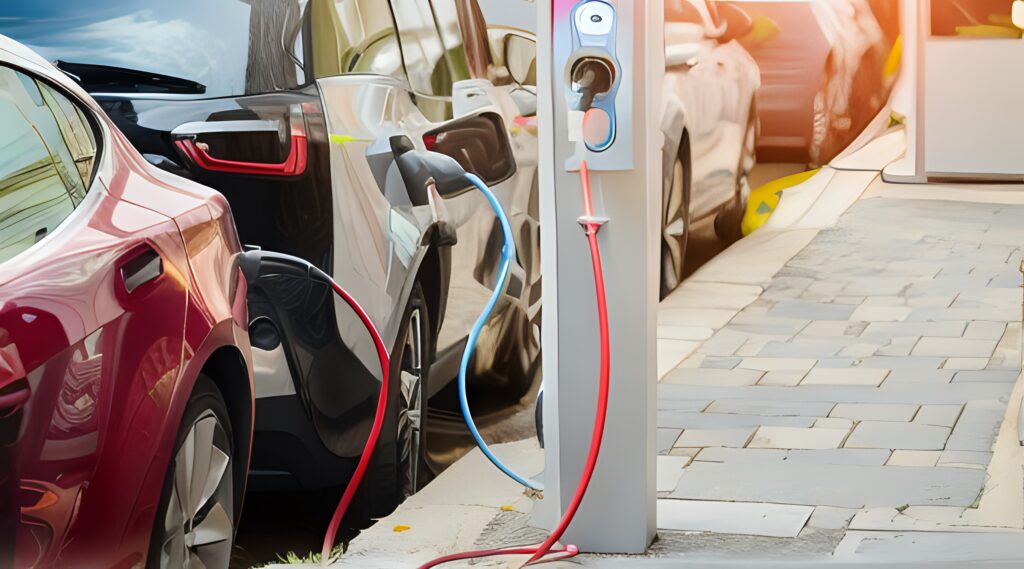
EV-Charging Station (AC)
Listing Category by product
EV-Charging station (AC) manufacturers
EV-Charging station (AC) manufacturers playing a crucial role in facilitating convenient and reliable charging infrastructure. These companies specialize in designing and producing charging stations that utilize alternating current (AC) to recharge electric vehicles efficiently. With features such as compatibility with various EV models, customizable charging options, and advanced connectivity features, they empower EV owners to conveniently charge their vehicles at home, workplaces, and public locations. By offering versatile and user-friendly charging solutions, AC EV-charging station manufacturers contribute to the widespread adoption of electric vehicles and the development of sustainable transportation ecosystems worldwide.
Exploring EV-Charging station (AC)
EV-Charging stations (AC) deliver alternating current (AC) electricity to the vehicle’s onboard charger, which converts it to direct current (DC) to charge the battery. AC charging stations are commonly found in residential areas, workplaces, and public locations, offering varying power levels typically ranging from 3.7 kW to 22 kW. The charging rate is measured in kilowatt-hours (kWh), indicating the amount of energy transferred to the vehicle during the charging session. EV owners can choose between different charging speeds based on their needs and the capabilities of their vehicles, with slower chargers suitable for overnight charging and faster chargers enabling quicker top-ups during the day.
Key features and benefits
- Versatility: EV-Charging stations (AC) support a wide range of electric vehicles, providing a versatile charging solution for different makes and models.
- Flexibility: With multiple power levels available, AC charging stations offer flexibility in charging speeds, allowing EV owners to tailor their charging sessions to fit their schedules and energy requirements.
- Accessibility: AC charging stations are commonly installed in various locations, including residential areas, workplaces, and public parking lots, providing convenient access for EV owners wherever they go.
- Affordability: Compared to fast DC charging stations, AC chargers are typically more affordable to install, making them a cost-effective option for businesses and municipalities looking to expand EV charging infrastructure.
- Compatibility: EV-Charging stations (AC) comply with industry standards and protocols, ensuring compatibility with a wide range of electric vehicles and charging networks, promoting interoperability and ease of use for EV owners.
In the coming years, EV-Charging stations (AC) are expected to undergo significant innovations, driving advancements in efficiency, connectivity, and user experience.
Innovations in EV-Charging stations
The future of EV-Charging stations (AC) for electric vehicles holds promising developments aimed at enhancing charging speed, convenience, and sustainability.
- Increased charging speeds: Innovations in AC charging technology will focus on delivering faster charging speeds, reducing the time required to recharge EV batteries and improving overall charging efficiency.
- Smart sonnectivity: Future AC charging stations will feature enhanced connectivity capabilities, enabling integration with smart grid systems, mobile applications, and vehicle-to-grid (V2G) communication, facilitating optimized charging schedules and energy management.
- User experience: Innovations in user interface design and payment systems will enhance the user experience at AC charging stations, making it easier for EV owners to locate, access, and pay for charging services.
- Renewable energy integration: EV-Charging stations (AC) may incorporate renewable energy sources such as solar panels or wind turbines, enabling sustainable and environmentally friendly charging options for EV owners.
- Modular and scalable design: Future AC charging stations will adopt modular and scalable designs, allowing for easier installation, maintenance, and expansion of charging infrastructure to meet growing demand for electric vehicles.
These innovations signify a promising future for EV-Charging stations (AC), playing a vital role in supporting the widespread adoption of electric vehicles and the transition to a cleaner, more sustainable transportation ecosystem.











